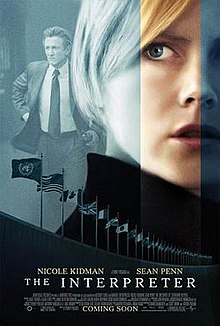Fortune, here.
Thursday, March 30, 2017
Wednesday, March 29, 2017
Tuesday, March 28, 2017
Monday, March 27, 2017
Winner-Take-All Digital Platforms / Big Data and Competition
Stigler Center, 28 March 2017, 3.30 pm Trento Time, live streamed, links here.
Defining 'Big Data' in Antitrust
X. Boutin, G. Clemens, here.
What giants?" Asked Sancho Panza.
"The ones you can see over there," answered his master, "with the huge arms, some of which are very nearly two leagues long."
"Now look, your grace," said Sancho, "what you see over there aren't giants, but windmills, and what seems to be arms are just their sails, that go around in the wind and turn the millstone."
"Obviously," replied Don Quijote, "you don't know much about adventures.
What giants?" Asked Sancho Panza.
"The ones you can see over there," answered his master, "with the huge arms, some of which are very nearly two leagues long."
"Now look, your grace," said Sancho, "what you see over there aren't giants, but windmills, and what seems to be arms are just their sails, that go around in the wind and turn the millstone."
"Obviously," replied Don Quijote, "you don't know much about adventures.
Saturday, March 25, 2017
Friday, March 24, 2017
Maurice Stucke discussing "Virtual Competition" at Harvard University
Tuesday, March 28, 2017 at 06:00 pm Trento Time, Video here.
Thursday, March 23, 2017
Wednesday, March 22, 2017
Tuesday, March 21, 2017
Monday, March 20, 2017
Friday, March 17, 2017
Thursday, March 16, 2017
Algorithms and competition
M. Vestager, here.
"It's true that the idea of automated systems getting together and reaching a meeting of minds is still science fiction (emphasis added)". This excruciatingly reminds me that it has been rather long since I've been back from a refreshing break and that I've still a couple of posts pending...
 |
| Large friendly letters? |
Wednesday, March 15, 2017
The Implications of Brexit for Uk Competition Law: Practical Issues and Priorities
The City of London Law Society, here.
Tuesday, March 14, 2017
Monday, March 13, 2017
Sunday, March 12, 2017
Saturday, March 11, 2017
Friday, March 10, 2017
Thursday, March 09, 2017
Wednesday, March 08, 2017
Tuesday, March 07, 2017
Age of Algorithms: Data, Democracy and the News
Kavli Conversation, Video here (from 07:12).
('Outrage is the new porn'; 'everyone wants to hand off the responsability for extremely difficult decisions'; apps disentangling algorithms as transparency).
('Outrage is the new porn'; 'everyone wants to hand off the responsability for extremely difficult decisions'; apps disentangling algorithms as transparency).
Monday, March 06, 2017
Tuesday, February 21, 2017
Monday, February 20, 2017
How antitrust enforcement can spur innovation: Bell Labs and the 1956 Consent Decree
M. Watzinger, T. Fackler, M. Nagler, M. Schnitzer, here.
Friday, February 17, 2017
Thursday, February 16, 2017
Wednesday, February 15, 2017
The Digital Privacy Paradox: Small Money, Small Costs, Small Talk
S. Athey, C. Catalini, C. Tucker, here.
Tuesday, February 14, 2017
When Competition Policy Meets Science Fiction (Part 2)
(Part 1 here)
Further discussions in London focused on a second constellation, characterized
as “Hub and Spoke”, in which competitors do not predetermine the
pricing rules themselves but outsource this function to a third party. The main
differences between this and the “Messenger Scenario” (as described above with reference to the UK poster case) are that
the parties here a) use the same
automated repricing tool and b) the computer programme calculates prices based
on its own blueprint and not directly executing the rules set by the human sellers.
As noted by some of the conference speakers and thoroughly discussed in the book Virtual Competition, the use by competing sellers of automated repricing capabilities
offered by a single provider can lead to some measure of de facto price
alignment. This result is potentially worrisome and competition enforcers
should be prepared to address it in a suitable way. This shouldn’t be too difficult
where the dampening of price competition produced by the automated repricing tool
is intentional on the side of the competitors, meaning that it is the original
reason why they have chosen the same algorithmic tool, or that they are at least
aware that the technology as concretely employed has or could have this effect.
In this case, the automated repricing software jointly employed by the sellers
could be seen as the hub (or "brain") that facilitates collusion by controlling the wheel's spokes.
Also amidst the gales of technological change, therefore, the notion of awareness is likely to remain central to the assessment of collusive behaviour, as recently stressed by the CJEU in Eturas, where the Court applied Art. 101(1) TFEU to an online travel booking system used by 30 travel agencies in Lithuania. The administrator of the booking system posted a notice in the system mailboxes informing the agencies of a technical (and automatic) restriction on the discount rates they could offer their own clients. The first preliminary question addressed to the CJEU by the referral national court asked whether the simple proof of the system notice allows the presumption that the “economic operators were aware, or ought to have been aware, of the system notice introduced into the computerised information system”. According to the CJEU, it is up to national law to decide if proof that a message has been sent to the booking system’s mailboxes is sufficient to prove that the addressees were aware, or ought to have been aware, of its content. The presumption of innocence however precludes the referring court from deducing the undertaking's awareness of the message content from the mere dispatch of the message in the booking system. Instead, a presumption of awareness may be based on ‘other objective and consistent indicia’ that the undertaking tacitly assented to an anticompetitive action (for instance, in this case there had been prior communication between the system administrator and the travel agencies regarding a possible capping of discount rates). If awareness of the content of the message can be demonstrated, the acquiescence in that initiative may be inferred unless the undertaking opposes to it (e.g., by reporting the initiative to the authorities). In a nutshell, the “unusual method of communication” between the undertakings concerned, namely the system notice, is a sufficient basis for the finding of a concerted practice aiming to a discount restriction provided that the travel agencies were aware of the content of the communication. This also means that, as argued by the Advocate General Szpunar, “the mode of communication in itself is not relevant, especially since the participants in collusion may be expected to avail themselves of the possibilities offered by the advance of technology”.
On a slightly different note, it should also to be highlighted that future cases are likely to be substantially more challenging than the one considered by the CJEU in Eturas, which had some rather rudimentary technology at its core. Thus, the provider of a jointly employed, big data-fueled repricing tool like for instance Feedvisor could work out profit maximization strategies for the benefit of its high-paying clients that are much more sophisticated (and opaque) than a bare price alignment, based on rich and complex sources of market data, the ranking criteria (algorithms) employed by the marketplaces, the flow of information coming from the sellers, in-depth consumer data, etc. Among the many tactics creatively employed by the automated repricing tool, only a few – difficult to spot, and for intermittent periods of time – could possibly be considered price dampening by way of horizontal collusion.
Also amidst the gales of technological change, therefore, the notion of awareness is likely to remain central to the assessment of collusive behaviour, as recently stressed by the CJEU in Eturas, where the Court applied Art. 101(1) TFEU to an online travel booking system used by 30 travel agencies in Lithuania. The administrator of the booking system posted a notice in the system mailboxes informing the agencies of a technical (and automatic) restriction on the discount rates they could offer their own clients. The first preliminary question addressed to the CJEU by the referral national court asked whether the simple proof of the system notice allows the presumption that the “economic operators were aware, or ought to have been aware, of the system notice introduced into the computerised information system”. According to the CJEU, it is up to national law to decide if proof that a message has been sent to the booking system’s mailboxes is sufficient to prove that the addressees were aware, or ought to have been aware, of its content. The presumption of innocence however precludes the referring court from deducing the undertaking's awareness of the message content from the mere dispatch of the message in the booking system. Instead, a presumption of awareness may be based on ‘other objective and consistent indicia’ that the undertaking tacitly assented to an anticompetitive action (for instance, in this case there had been prior communication between the system administrator and the travel agencies regarding a possible capping of discount rates). If awareness of the content of the message can be demonstrated, the acquiescence in that initiative may be inferred unless the undertaking opposes to it (e.g., by reporting the initiative to the authorities). In a nutshell, the “unusual method of communication” between the undertakings concerned, namely the system notice, is a sufficient basis for the finding of a concerted practice aiming to a discount restriction provided that the travel agencies were aware of the content of the communication. This also means that, as argued by the Advocate General Szpunar, “the mode of communication in itself is not relevant, especially since the participants in collusion may be expected to avail themselves of the possibilities offered by the advance of technology”.
On a slightly different note, it should also to be highlighted that future cases are likely to be substantially more challenging than the one considered by the CJEU in Eturas, which had some rather rudimentary technology at its core. Thus, the provider of a jointly employed, big data-fueled repricing tool like for instance Feedvisor could work out profit maximization strategies for the benefit of its high-paying clients that are much more sophisticated (and opaque) than a bare price alignment, based on rich and complex sources of market data, the ranking criteria (algorithms) employed by the marketplaces, the flow of information coming from the sellers, in-depth consumer data, etc. Among the many tactics creatively employed by the automated repricing tool, only a few – difficult to spot, and for intermittent periods of time – could possibly be considered price dampening by way of horizontal collusion.
Also discussed as at least tangentially part of the “Hub and
Spoke Scenario” was the so called Uber Dilemma. By joining the car service platform,
the driver agrees to charge her riding services according to the fares worked
out by Uber’s algorithm. This is a simple, middling vertical agreement between
the platform and the driver. Once the platform acquires market power, other drivers could become aware that
by joining the platform they would feast on supracompetitive prices (higher
fares and, subsequently, higher commissions earned by the platform). At this point, that is likely to materialize after the platform has already tipped into dominance, competition enforcers
could detect the familiar scent of horizontal collusion in the market, possibly
by way of hub-and-spoke conspiracy. But as soberly intimated by one distinguished competition
enforcer and keynote speaker at the conference, “intervening after tipping may be futile”.
(Part 3 never followed, c'est la vie, folks!).
The EU, acting on its own, may conclude the Marrakesh Treaty
Court of Justice of the European Union, Opinion C-3/15, here.
(And shame on those EU States still opposing the conclusion of the Treaty.)
(And shame on those EU States still opposing the conclusion of the Treaty.)
Monday, February 13, 2017
Sunday, February 12, 2017
Saturday, February 11, 2017
Friday, February 10, 2017
Subscribe to:
Posts (Atom)
-
CERRE, Video here .
-
LG Frankfurt am Main, 2-06 O 172/09 (verkündet am 13.05.2009). Lesenswertes aus der Begründung (meine Hervorhebungen): "Vorstellbare ...
-
Antitrust Digest, here (remember that Ascola 2020 presentation?).
-
Conversation with J.Grimmelmann, J. Band, K. Crews, here .
-
Autorité de la concurrence, ici .
-
Panel, Programme here , Video here .
-
J. Gans, here .
-
The Register, here .


























